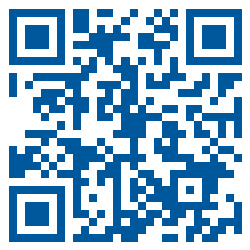
 EI Dual Diagnosis Practitioner in London inLondon
EI Dual Diagnosis Practitioner in London inLondon PUBLISHED FRI 13 DEC 2024 Jump to job information section
Job description
We are looking for enthusiastic, motivated, caring, and creative person to come and join us and help pioneer a newly developed clinical service, working with dual diagnosis clients in the UK's founding Early Intervention for Psychosis community team. Specifically, the post holder will work as a dual diagnosis specialist within the Lambeth Early Intervention community service, targeting clients experiencing their first episode of psychosis and using methamphetamines to improve outcomes and provide holistic support.
The post holder will provide specialist assessments and evidence based interventions to eligible patients within an Early Intervention team, liaise with other organisations and professionals to promote communication and good practice, undertake audit activity and data collection. The post holder will ensure that high standards of assessment and treatment are provided to people with co-existing mental health and use of methamphetamines, based on the best available evidence and using an assertive outreach approach. The post holder will provide education, training, support to this group of service users as well as supervising a peer support worker and co-ordinating a peer support group.
This is a Fixed term clinical position lasting for 2 years that also gives the opportunity to work alongside world leading experts in addiction and psychosis.
To provide comprehensive assessment of mental health and substance misuse issues specific to needs of service area.
To undertake time-limited treatment specific work with clients with complex dual diagnosis needs namely Psychosis and Methamphetamine use whose care is co-ordinated by other members of the EIS.
Undertake holistic assessments and risk assessments to help determine service and support needs and identify where these needs can be met.
To be able to communicate with and meet the needs of families and carers as appropriate to the care group and the individual client.
To attend reviews, case conferences, network meetings, ward and community based multi-disciplinary meetings. Understand and participate in safeguarding processes.
To deliver specialist information, advice, assessment, caseload management, recovery and harm reduction, signposting and support with harm minimisation. To coordinate peer support groups alongside a peer support worker.
To have experience of and specialist knowledge on methamphetamine use and evidence-based interventions and lead on their dissemination across clinical areas.
About us
Please see Job Description for more details.
Post holder will provide ongoing specialist support and guidance to colleagues to enable staff to work effectively with people with complex needs. They will promote understanding of the effect that substance use can have on community support/treatment such as in engagement and risks to physical health. The post holder will work jointly around assessment, treatment, management and evaluation of support for people who present with dual diagnosis issues.They will provide support to people in line with the clinical pathways and best practice within the Early Intervention and substance misuse services including motivational interventions to enable people to engage with services and encourage change behaviour.
Adults with psychotic disorders often struggle to engage with the existing addiction services and therefore someone motivated and some experience in working creatively and assertively with this clinical population would be preferred.
If you're interested in this role but you have questions or you're not yet ready to apply, then please book a quick call with us and we'd be happy to answer any questions you have and tell you more about the role.
Requirements
See the job description for full role requirements.
Benefits
Benefits are provided by the employer and will be confirmed during your application.
A quick tap lets us tune future job matches for you


Scan with your phone to return to this page later.